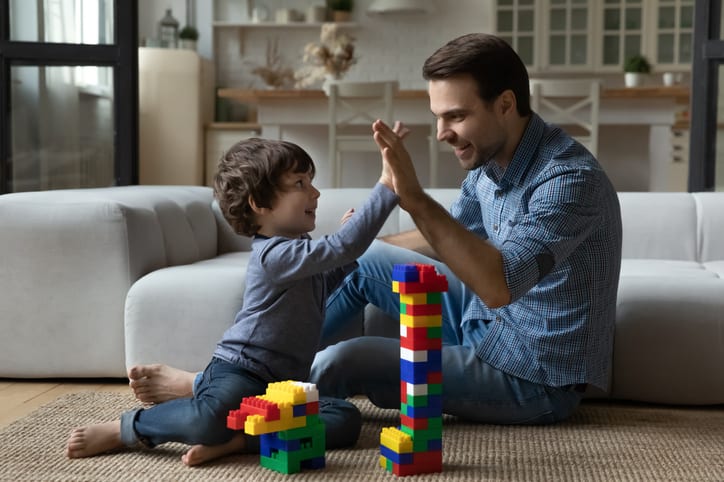Everyone – at any age – loves to hear someone tell them they’ve done a good job on an assignment, the new haircut is flattering or the meal cooked is just delicious. Our children love to hear praise too and providing praise is an important part of parenting. At Alzein Pediatrics, the care providers in our pediatric group know that parents want to praise kids positively, so we’re here to help.
One of the goals of praise is to motivate your child to keep trying, challenge themselves, and find their internal rewards. Praise, done appropriately, promotes pride and self-confidence, helping kids learn that learning, growing, and doing well will provide personal satisfaction.
Do Praise the Effort, Not the Achievement
Not all children are going to get honor roll grades, even if they study constantly. Praising a child for their effort helps them realize that learning and doing are what’s important. Use phrases like, “You really worked to review and memorize those spelling words!” or “I saw how hard your arms were pumping when you were running” – and stop right there. Don’t end your praise with “it’s okay you didn’t get an A” or “it’s fine you came in last.” These types of words can instantly and abruptly destroy all your child’s pride in their effort.
Don’t Praise Things They Should Do Anyway
When your child admits to breaking your favorite mug, thank them for being honest, but avoid saying, “It’s wonderful that you were honest.” Your child should always tell the truth. You can say, “Thank you for putting your clothes away without complaining,” but avoid gushing, “You did an amazing job cleaning your room!” Your child should participate in household chores.
Do Praise Behavior to Create an Empathetic Child
When you see your child sharing freely, taking turns, or including a sibling in play, say, “I saw how you offered to push Carmen on the swing. That was very kind of you.” This type of praise reinforces your child’s compassion and helps them understand that these behaviors are socially rewarded.
Don’t Make it About Anyone Else
You may feel a great deal of pride when your child hits a home run, but saying, “I’m so proud of you!” takes away their achievement and makes it about you. Instead, try, “You must be so proud of yourself!” or “You must feel so good right now!”
You’ll also want to steer clear of comparisons, avoiding phrases like, “You are the best of everyone on the team” or “You did so much better than your brother.” This sets your child up for disappointment and resentment when someone achieves something they did not. Praising your child’s effort is what makes an impact.
Taking these approaches to praise may sound very different than what you’re accustomed to. In reality, using these kinds of praise motivates your child to continue to accept failures, learn from mistakes, love challenges, and try again.
Do you have questions about your child’s emotional or social development? Just call us at 708-424-7600 or visit Our Evergreen Park, Oak Lawn/95th Street, and Urgent Care locations. We are always happy to provide answers for your child’s health and well-being!


